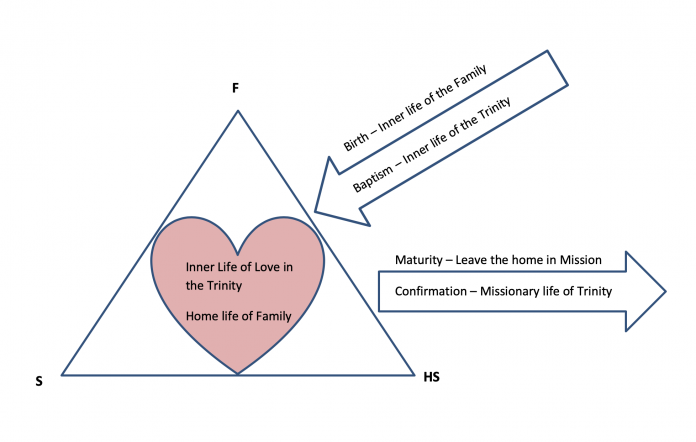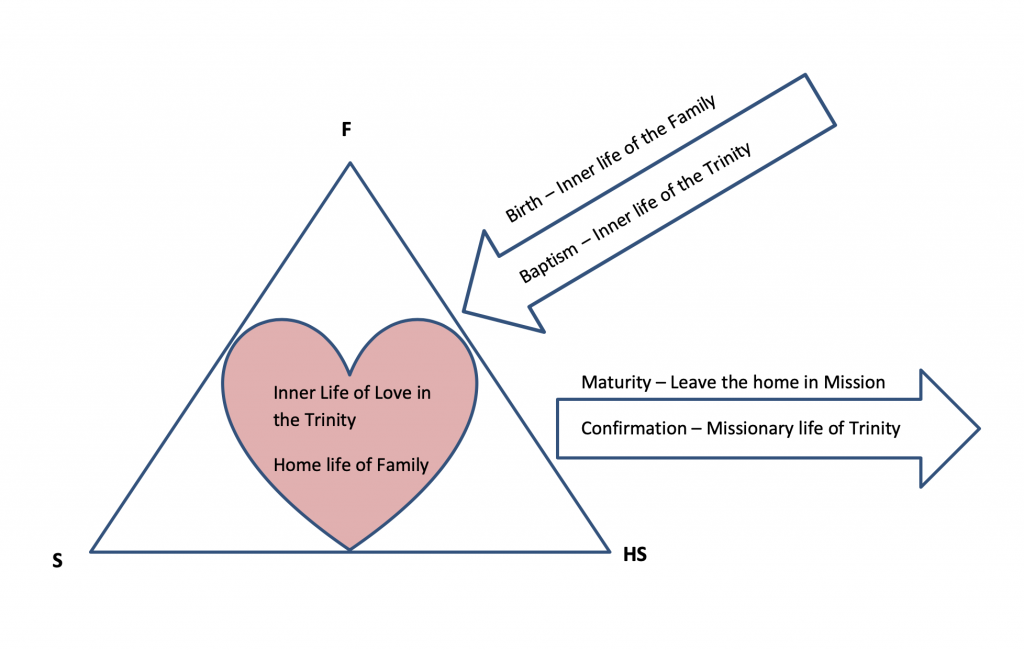
JASON GALE
C.S. Lewis remarked, “You may ask, “If we cannot imagine a three-personal Being, what is the good of talking about Him?” Well, there isn’t any good talking about Him. The thing that matters is being actually drawn into that three-personal life, and that may begin any time — tonight, if you like” (Lewis, C.S. Beyond Personality. The MacMillan Company: New York, 1948, pg.10).
Being drawn into the life of the Blessed Trinity is the purpose for the grace of the Sacraments and a critical goal of catechesis.
In order to be better disposed to receive the grace of the Holy Spirit in Confirmation, we need to understand what is being offered. The Catechismstates, “Confirmation perfects Baptismal grace; it is the sacrament which gives the Holy Spirit in order to root us more deeply in the divine filiation, incorporate us more firmly into Christ, strengthen our bond with the Church, associate us more closely with her mission, and help us bear witness to the Christian faith in words accompanied by deeds.” (CCC 1316, emphasismine). With our Baptism and subsequent Confirmation, we are rooted in Trinitarian Love (divine filiation) and sent in Trinitarian Mission (associate us more closely with her mission). To go deeper into this reality, we can use the very appropriate analogy of the family.
Like birth, Baptism brings us into the inner life of a family. It roots us in the Love of the Trinity. This “central mystery of Christian faith and life”(CCC 234) is the source of our life andmission. With maturity, we leave home and go out into the world. Younger members of the family may go to a school outside the home. This becomes their missionary field. They may play organized sports. This becomes their missionary field. Confirmation is that maturity, where we do not necessarily leave the love that exists in the inner life of the Trinity, but fromthis inner life, we go out into the world and to those God has placed within our care. This inner life of love (beginning at Baptism) is the source, and the only source, from where we accomplish the mission of the Church.

It is important in our catechesis on Confirmation to not only focus on the Holy Spirit. Baptism and Confirmation both have to do with Life in the Trinity, the love between the Father and Son which is the Holy Spirit. We cannot love what we do not know and the better we can understand the workof the Holy Spirit, the better we can understand whothe Holy Spirit is. These two Sacraments also correspond the fifth and sixth tasks of catechesis: 5) Education for Community Life 6) Missionary Initiation. (Cf. GDC 86). Our life within the Christian community in the order of grace begins with Baptism and we are sent out, according to our state in life, to participate in the missionary life of the Church. Fr. Paul Haffner explains, “While Baptism focuses more on the individual life of the member of the Church, Confirmation places a stress on the communal aspect.” (Haffner, Paul. The Sacramental Mystery.Herefordshire, UK: Gracewing, 2008, 83). What this tells catechists, is that the Sacraments are essential to accomplishing the tasks of catechesis. A fruitful catechesis is not just teaching about the Sacraments, but actually celebrating and receiving the Sacraments. Fr. Haffner continues, “Confirmation puts the seal on Baptism as Pentecost completes Easter.” (Haffner, 84).
The love of Jesus does not end with Easter, but brings about new life in Pentecost with the sending of the Holy Spirit. In the life of the Christian, the inner life of love in the Trinity begins in Baptism and is perfected in Confirmation. This life of loving mission towards God and towards humanity needs nourishment so we can already see where this heading…the Eucharist! These three Sacraments “lay the foundation for every Christian life” (CCC 1212) and all have as their source, the Most Holy Trinity. (Cf. CCC 234).
JASON GALE, MA, LDiv, is the Director of Catechist Formation Program at Aquinas College in Nashville, Tennessee.




